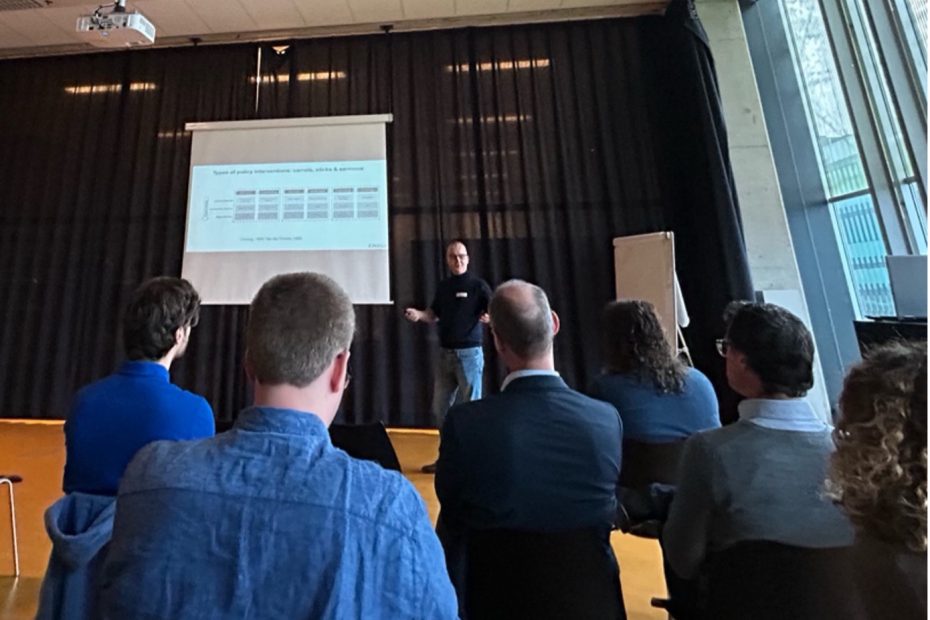On December 6th, Workpackage 2 hosted a workshop at Eindhoven University of
Technology. The event brought together experts from academia and industry to explore
human behavior, data-driven mobility solutions, and their combined impact on the
success of promoting sustainable transport solutions.
The day began with an opening speech by Soora Rasouli, professor of urban planning
and transportation in TUe, who outlined the workshop’s goal of exploring the role of
human behavior and data in designing effective and user-accepted mobility solutions.
The morning session focused on the process of behavioral change, covering its
transition from research to policy and ultimately to implementation. In the afternoon, two
start-ups shared real-world examples of innovative mobility solutions, offering valuable
insights into how these concepts are applied in practice.
Marco van Burgsteden from CROW presented a methodology framework that integrates
human behavior into design of transport policy. This approach helps assess mobility
solutions by considering both individual and collective well-being, emphasizing the need
for integrating behavioral data into policy evaluations.
Valeria Caiati, Assistant professor at TU/e, introduced her research on Human
acceptance of Mobility as a Service (MaaS) in the Netherlands. She presented the
results of her past years studies on how user behavior and preferences influence MaaS
adoption, highlighting challenges such as privacy concerns, car dependency and pricing
structures. Caiati stressed the need for more pilot data to assess MaaS’s success and
its real-world impact on user engagement.
In the afternoon, Ivo de Geus from UrbanVind discussed how the company optimizes
demand in public transport systems. Using real-time data tools, such as Bluetooth-
based flow estimation, with the aim to improve transport efficiency by redistributing
demand and managing congestion. He emphasized the importance of accessible data
for decision-making, while also addressing privacy challenges.
Jef Heyse from Automicle presented Mobility as a Feature, a solution that aggregates
various transport network companies (TNCs) via APIs and shows them as widgets in
existing apps for different purposes. This approach simplifies mobility by providing users
with an integrated view of available services and intermodal planning options.
The workshop highlighted the need for improved data collection, and their availabilities
to assess the effectiveness of mobility solutions. Participants agreed on the importance of understanding human behavior in driving the adoption of innovative mobility
solutions, as well as the need for collaboration across sectors to create user-friendly
sustainable mobility.
The event concluded with a call for greater data transparency and knowledge sharing to
develop more effective and equitable mobility systems.
Author: Andrea Dominguez Gamez
